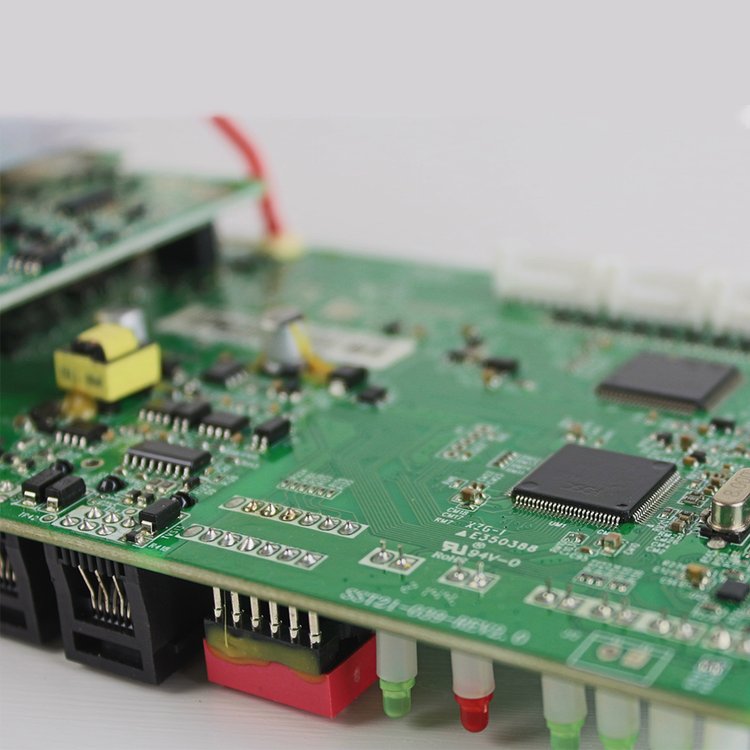Blog
PCM vs. BMS: What’s the Difference and Which One Does Your Battery Need?
2025-06-10 | Eric

In today’s tech-driven world, batteries power everything—from your smartphone and power tools to electric vehicles and solar energy systems. But behind the scenes, keeping those batteries safe and running smoothly are two key systems: the Protection Circuit Module (PCM) and the Battery Management System (BMS).
If you’ve ever wondered which one your device needs—or why it even matters—you’re in the right place. Let’s break it all down in simple terms.
PCM (Protection Circuit Module): Your Battery’s Bodyguard
Think of a PCM as your battery’s basic line of defense. It keeps your lithium-ion battery safe by preventing the most common electrical hazards.
What Does a PCM Do?
- Overcharge Protection: Stops the battery from going over its voltage limit (which can cause overheating or worse).
- Over-Discharge Protection: Prevents the battery from draining too much, which could damage its health.
- Overcurrent Protection: Cuts off current if it goes too high, protecting internal components.
- Short-Circuit Protection: Instantly shuts down the battery if a short circuit occurs—major fire hazard avoided.
BMS (Battery Management System): The Smart Brain of Your Battery
A BMS goes far beyond protection. It’s the full package—monitoring, optimizing, and communicating to ensure your battery is safe, efficient, and long-lasting.
Key Features of a BMS
- Cell Balancing: Ensures each cell charges and discharges evenly—important for performance and lifespan.
- Temperature Monitoring: Prevents overheating by keeping an eye on the heat.
- State of Charge (SOC) Estimation: Accurately tells you how much juice is left.
- Communication Interface: Shares real-time data with external systems for remote monitoring or control.
- Fault Detection and Alerts: Catches issues before they become serious—and notifies you right away.
Feature Comparison of PCM and BMS
| Feature | PCM | BMS |
|---|---|---|
| Overcharge Protection | ✅ | ✅ |
| Over-Discharge Protection | ✅ | ✅ |
| Overcurrent Protection | ✅ | ✅ |
| Short-Circuit Protection | ✅ | ✅ |
| Cell Balancing | ❌ | ✅ |
| Temperature Monitoring | ❌ | ✅ |
| SOC Estimation | ❌ | ✅ |
| Communication Capabilities | ❌ | ✅ |
| Fault Diagnosis | Limited | Advanced |
| Ideal For | Simple Devices | Complex Systems |
| Cost | Lower | Higher |
So… Which One Do You Need?
✅ Choose a PCM if:
- You’re building or using a small electronic device.
- You only need basic safety features.
- You’re working with a tight budget.
- There’s no need for cell balancing or advanced monitoring.
✅ Choose a BMS if:
- You need better performance and efficiency.
- You’re working on high-stakes projects like EVs, solar systems, or industrial machinery.
- You want real-time data and remote monitoring.
- Safety and battery lifespan are top priorities.
Conclusion
Batteries are powerful—but they need the right management system to work safely and effectively. A PCM is great for keeping things safe and simple. A BMS? That’s the choice if you want full control, data insights, and optimized battery performance.
When in doubt, think about your project’s size, complexity, and safety needs. Choose wisely, and your battery will thank you—with better performance and longer life.
Need help choosing the right system for your battery?
Feel free to contact us for expert advice—we’re here to help you power smarter.
Frequently Asked Questions
Q1: Can I upgrade from PCM to BMS later?
A: Yes, but it’s not plug-and-play. You’ll need technical skills to install and calibrate the BMS for your battery pack.
Q2: Is a BMS better than a PCM?
A: A BMS includes all the protection features of a PCM—and adds much more. So yes, it’s more powerful, but also more expensive.
Q3: How does a BMS extend battery life?
A: By balancing cells and managing charge cycles properly, it prevents stress on the battery, leading to longer lifespan.
Q4: Does a BMS need regular maintenance?
A: Not really. Just keep an eye out for software updates and make sure all sensors are working correctly.
Q5: Is a BMS worth it for small DIY projects?
A: Not always. For basic setups, a PCM might do the job. But if performance, data, or safety are key, investing in a BMS is smart.
Popular Articles
Contact Details
Worktime :Monday to Friday 9am - 6pm (HKT)
WhatsApp/Wechat/Mobile :+86XXXXX
Email : info@lifepo4cellstore.com
